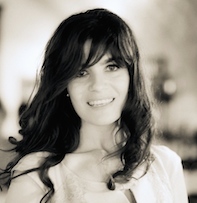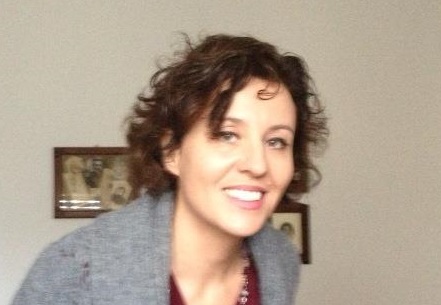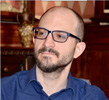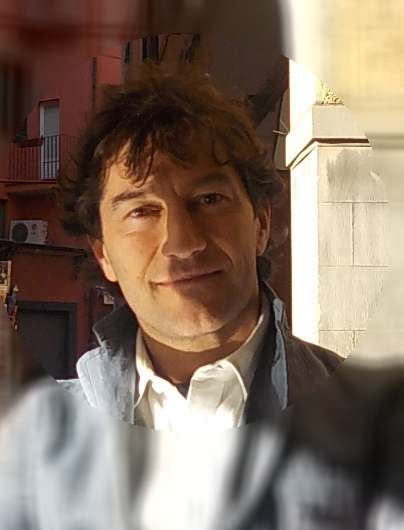Studying at the University of Verona
Here you can find information on the organisational aspects of the Programme, lecture timetables, learning activities and useful contact details for your time at the University, from enrolment to graduation.
Academic calendar
The academic calendar shows the deadlines and scheduled events that are relevant to students, teaching and technical-administrative staff of the University. Public holidays and University closures are also indicated. The academic year normally begins on 1 October each year and ends on 30 September of the following year.
Course calendar
The Academic Calendar sets out the degree programme lecture and exam timetables, as well as the relevant university closure dates..
| Period | From | To |
|---|---|---|
| Sem. IA (31.10.16 sosp.lezioni) | Oct 3, 2016 | Nov 12, 2016 |
| Sem. IB | Nov 14, 2016 | Jan 21, 2017 |
| Sem. IIA | Feb 27, 2017 | Apr 22, 2017 |
| Sem. IIB | Apr 24, 2017 | Jun 10, 2017 |
| Session | From | To |
|---|---|---|
| Sessione Estiva | Jun 12, 2017 | Jul 29, 2017 |
| Sessione Autunnale | Aug 21, 2017 | Sep 23, 2017 |
| Sessione Straordinaria | Jan 22, 2018 | Feb 24, 2018 |
| Session | From | To |
|---|---|---|
| Sessione Estiva | Jul 10, 2017 | Jul 15, 2017 |
| Sessione Autunnale | Dec 18, 2017 | Dec 21, 2017 |
| Sessione Invernale | Mar 23, 2018 | Mar 29, 2018 |
| Period | From | To |
|---|---|---|
| Festa di Ognissanti | Nov 1, 2016 | Nov 1, 2016 |
| Festa dell'Immacolata | Dec 8, 2016 | Dec 8, 2016 |
| Vacanze Natalizie | Dec 23, 2016 | Jan 7, 2017 |
| Vacanze Pasquali | Apr 14, 2017 | Apr 18, 2017 |
| Festa della liberazione | Apr 25, 2017 | Apr 25, 2017 |
| Festa dei Lavoratori | May 1, 2017 | May 1, 2017 |
| Festa del Santo Patrono - San Zeno | May 21, 2017 | May 21, 2017 |
| Festa della Repubblica | Jun 2, 2017 | Jun 2, 2017 |
| Vacanze Estive | Aug 14, 2017 | Aug 19, 2017 |
Exam calendar
Exam dates and rounds are managed by the relevant Humanistic Studies Teaching and Student Services Unit.
To view all the exam sessions available, please use the Exam dashboard on ESSE3.
If you forgot your login details or have problems logging in, please contact the relevant IT HelpDesk, or check the login details recovery web page.
Should you have any doubts or questions, please check the Enrollment FAQs
Academic staff
 cristina.bertazzoni@univr.it
cristina.bertazzoni@univr.it
 giorgia.decarli@univr.it
giorgia.decarli@univr.it
 donato.desilvestri@univr.it
donato.desilvestri@univr.it
 laura.fontecedro@univr.it
laura.fontecedro@univr.it
 annalia.galardini@univr.it
annalia.galardini@univr.it
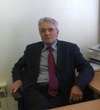
Longo Mario
 mario.longo@univr.it
mario.longo@univr.it
 045 8028393
045 8028393
 federico.melotto@univr.it; federicomelotto@hotmail.com
federico.melotto@univr.it; federicomelotto@hotmail.com

Migliorati Lorenzo
 lorenzo.migliorati@univr.it
lorenzo.migliorati@univr.it
 045802 8135
045802 8135
 igor.pelgreffi@univr.it
igor.pelgreffi@univr.it
 stefania.pontrandolfo@univr.it
stefania.pontrandolfo@univr.it
 daniela.princivalle@univr.it
daniela.princivalle@univr.it
Study Plan
The Study Plan includes all modules, teaching and learning activities that each student will need to undertake during their time at the University.
Please select your Study Plan based on your enrollment year.
1° Year
| Modules | Credits | TAF | SSD |
|---|
Cultural Anthropology
Developmental and educational psychology
Sociology and analysis of social dynamics
History of Philosophy
History of Education and Pedagogy
2° Year activated in the A.Y. 2017/2018
| Modules | Credits | TAF | SSD |
|---|
Teaching methodology and educational planning
Early Childhood Education
Theories and methods of cultural mediation
Computer Science and Multimedia
Social and Cultural Geography
3° Year activated in the A.Y. 2018/2019
| Modules | Credits | TAF | SSD |
|---|
Theories and techniques of the primary socialization
| Modules | Credits | TAF | SSD |
|---|
Cultural Anthropology
Developmental and educational psychology
Sociology and analysis of social dynamics
History of Philosophy
History of Education and Pedagogy
| Modules | Credits | TAF | SSD |
|---|
Teaching methodology and educational planning
Early Childhood Education
Theories and methods of cultural mediation
Computer Science and Multimedia
Social and Cultural Geography
| Modules | Credits | TAF | SSD |
|---|
Theories and techniques of the primary socialization
| Modules | Credits | TAF | SSD |
|---|
Legend | Type of training activity (TTA)
TAF (Type of Educational Activity) All courses and activities are classified into different types of educational activities, indicated by a letter.
Sociology and analysis of social dynamics [Cognomi M-Z] (2016/2017)
Teaching code
4S02401
Teacher
Coordinator
Credits
9
Language
Italian
Scientific Disciplinary Sector (SSD)
SPS/07 - GENERAL SOCIOLOGY
Period
Sem. IA (31.10.16 sosp.lezioni), Sem. IB
Learning outcomes
Aim of the course is the introduction to the basic concepts and the interpretative theories of Sociology. It will be illustrate the sociological interpretations on micro and macro social phenomena and transformations.
During the course will be addressed a specific research topic: the disease as a social construction and effect of the relationship between individual and society.
Part of the course will be dedicated to illustrate how the sociological discipline can use its own instruments in order to analyse particularly important social phenomena, like the ones mentioned before. Last aim of the course is the introduction to the strategies and research tools through which empirical sociology studies the phenomena of our time.
Program
Program
First part: introduction to sociology, culture, social structure, socialization, social interaction, organisations, deviance and social control, communities and urban life, inequality, stratification and social classes, ethnic inequality, gender and inequality, age and inequality, family, education, religion, economy and society, politi-cal system, population dynamics, collective behaviour and social movements, social and cultural change.
Second part: the disease as a social construction and effect of the relationship between individual and society.
Third part: introduction to strategies and tools of empirical research. Particular attention will be paid to qualitative techniques of empirical research: biographical approach in social sciences will be the specific reference.
Text-booksfor students who will not follow any lesson:
Smelser J.N. (2007), Manuale di sociologia, Il Mulino, Bologna (nuova edizione a cura di Baldini M) [no chapters 8 16, 17, 19, 20. Chapter 18 only section 3. Chapter 6 only sections 1 & 2].
Lonardi C. (2006), Racconti di cefalea. Approccio biografico alla malattia cronica, QuiEdit, Verona, up to page 173. Please note that chapter 3 of this text should be read carefully to give meaning to the previous chapters and successes. Chapter 3 does not constitute examination material.
Lonardi C.(2006), Raccontare e raccontarsi. L'approccio biografico nelle scienze sociali, QuiEdit, Verona [no chapter 4].
Viviani D. (2010), Il corpo dei giovani: tra moda e tradizione, FrancoAngeli, Milano [no chapter 6].
Examination Methods
Written examination
Teaching materials e documents
-
 ESEMPIO_LAVORI_GRUPPO
(pdf, it, 209 KB, 03/10/16)
ESEMPIO_LAVORI_GRUPPO
(pdf, it, 209 KB, 03/10/16)
-
 esiti 19_12
(pdf, it, 93 KB, 03/01/17)
esiti 19_12
(pdf, it, 93 KB, 03/01/17)
-
 lavori di gruppo esiti
(pdf, it, 111 KB, 25/01/17)
lavori di gruppo esiti
(pdf, it, 111 KB, 25/01/17)
-
 PROGRAMMI_DETTAGLIO_FREQUENTANTI_NONFREQUENTANTI
(pdf, it, 60 KB, 03/10/16)
PROGRAMMI_DETTAGLIO_FREQUENTANTI_NONFREQUENTANTI
(pdf, it, 60 KB, 03/10/16)
-
 PROPOSTA_LAVORI_GRUPPO
(pdf, it, 80 KB, 03/10/16)
PROPOSTA_LAVORI_GRUPPO
(pdf, it, 80 KB, 03/10/16)
Type D and Type F activities
Modules not yet included
Career prospects
Module/Programme news
News for students
There you will find information, resources and services useful during your time at the University (Student’s exam record, your study plan on ESSE3, Distance Learning courses, university email account, office forms, administrative procedures, etc.). You can log into MyUnivr with your GIA login details: only in this way will you be able to receive notification of all the notices from your teachers and your secretariat via email and soon also via the Univr app.
Graduation
Documents
| Title | Info File |
|---|---|
|
|
pdf, it, 99 KB, 13/10/23 |
|
|
pdf, it, 101 KB, 10/04/24 |
List of theses and work experience proposals
| theses proposals | Research area |
|---|---|
| Ambienti e contesti di lavoro con minori | Various topics |
| Analisi dei personal network di sostegno | Various topics |
| comunicazioni relative alla tesi | Various topics |
| Il teatro come contesto educativo | Various topics |
| I processi di globalizzazione culturale nella società contemporanea | Various topics |
| La social network analysis applicata allo studio dei contesti educativi | Various topics |
| L'educatore ed i progetti europei | Various topics |
| L'impegno associativo in ambito educativo | Various topics |
| Politiche sociali e contesti educativi | Various topics |
| Progetti di collaborazione con le istituzioni scolastiche | Various topics |
| PROPOSTE TESI AMBITO GEOGRAFICO | Various topics |
| Scuola e capitale sociale | Various topics |
Linguistic training CLA
Gestione carriere
Student mentoring
Practical information for students
Documents
| Title | Info File |
|---|---|
|
|
pdf, it, 325 KB, 02/05/23 |
|
|
pdf, it, 212 KB, 02/05/23 |
|
|
pdf, it, 131 KB, 02/05/23 |
Stage e Tirocini
Le ulteriori attività formative (crediti F) sono interamente coperte dall’attività di tirocinio “indiretto” (1 cfu) da svolgersi nel secondo anno e di tirocinio “diretto” (14 cfu) da svolgersi presso enti convenzionati per un numero complessivo di 15 cfu (375 ore). Chi è iscritta/o al curriculum servizi per l’infanzia è tenuta/o a svolgere il tirocinio presso nidi e servizi per la prima infanzia per almeno il 50% delle ore.
Il tirocinio professionalizzante (375 ore, pari a 15 cfu), è obbligatorio sia nella sua forma diretta che indiretta.
Il tirocinio indiretto, della durata di 25 ore a frequenza obbligatoria al 75%, si svolge in Università per 20 ore e in forma di lavoro individuale per 5 ore e consiste in un accompagnamento iniziale delle/degli studenti da parte dei tutor attraverso un percorso formativo dotandoli di conoscenze e strumenti adeguati a osservare, comprendere e rielaborare criticamente l’esperienza di tirocinio nei servizi educativi e ad affrontare il tirocinio negli enti con metodo e consapevolezza. Il percorso, da attuare in gruppi da 20-25 persone sotto la supervisione di un tutor, risponde alle esigenze costantemente espresse sia dalle/dagli studenti stessi sia dalle parti sociali che dai referenti degli enti convenzionati.
Il tirocinio diretto si propone di raggiungere i seguenti obiettivi:
- fare esperienza diretta di attività professionali, che richiedono un livello di preparazione al lavoro educativo;
- approfondire in particolare il rapporto tra preparazione teorica, acquisita mediante lo studio, ed esperienza pratica, tra mondo del sapere e della cultura e mondo del lavoro e delle professioni;
Al termine del tirocinio diretto lo studente deve presentare una relazione scritta, nella modalità concordata con il tutor accademico.
Nuove Linee Guida per il tirocinio di Scienze dell'educazione.
- Tutte le informazioni in merito agli stage per futuri studenti sono disponibili alla pagina Stage e tirocini.
- Tutte le informazioni in merito agli stage per studenti iscritti sono pubblicate in MyUnivr - come fare per - stage e tirocini.
- Tutte le informazioni in merito agli stage per le aziende sono disponili alla pagina Stage e tirocini per azienze.
Documents
| Title | Info File |
|---|---|
|
|
pdf, it, 302 KB, 16/07/21 |





